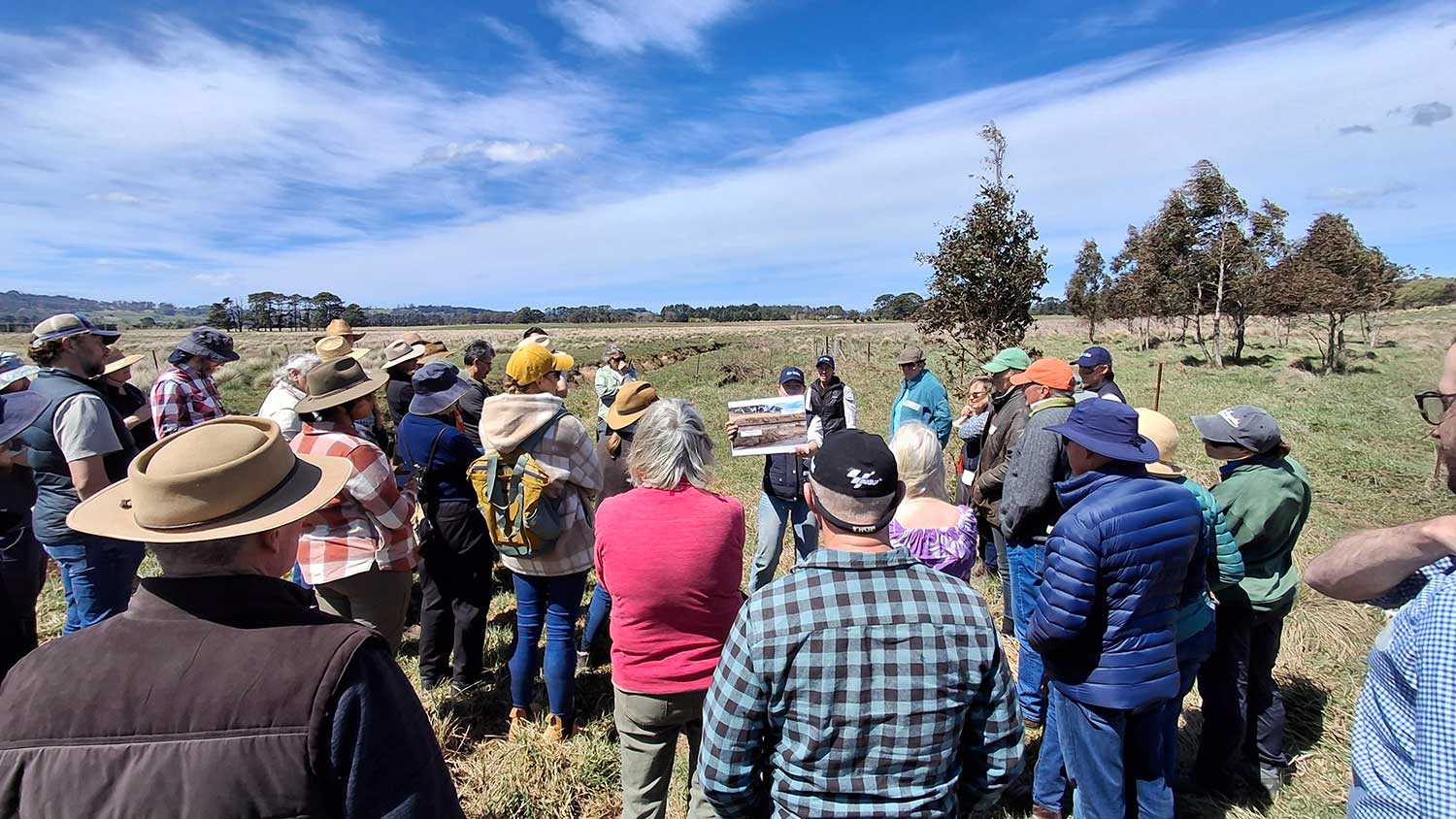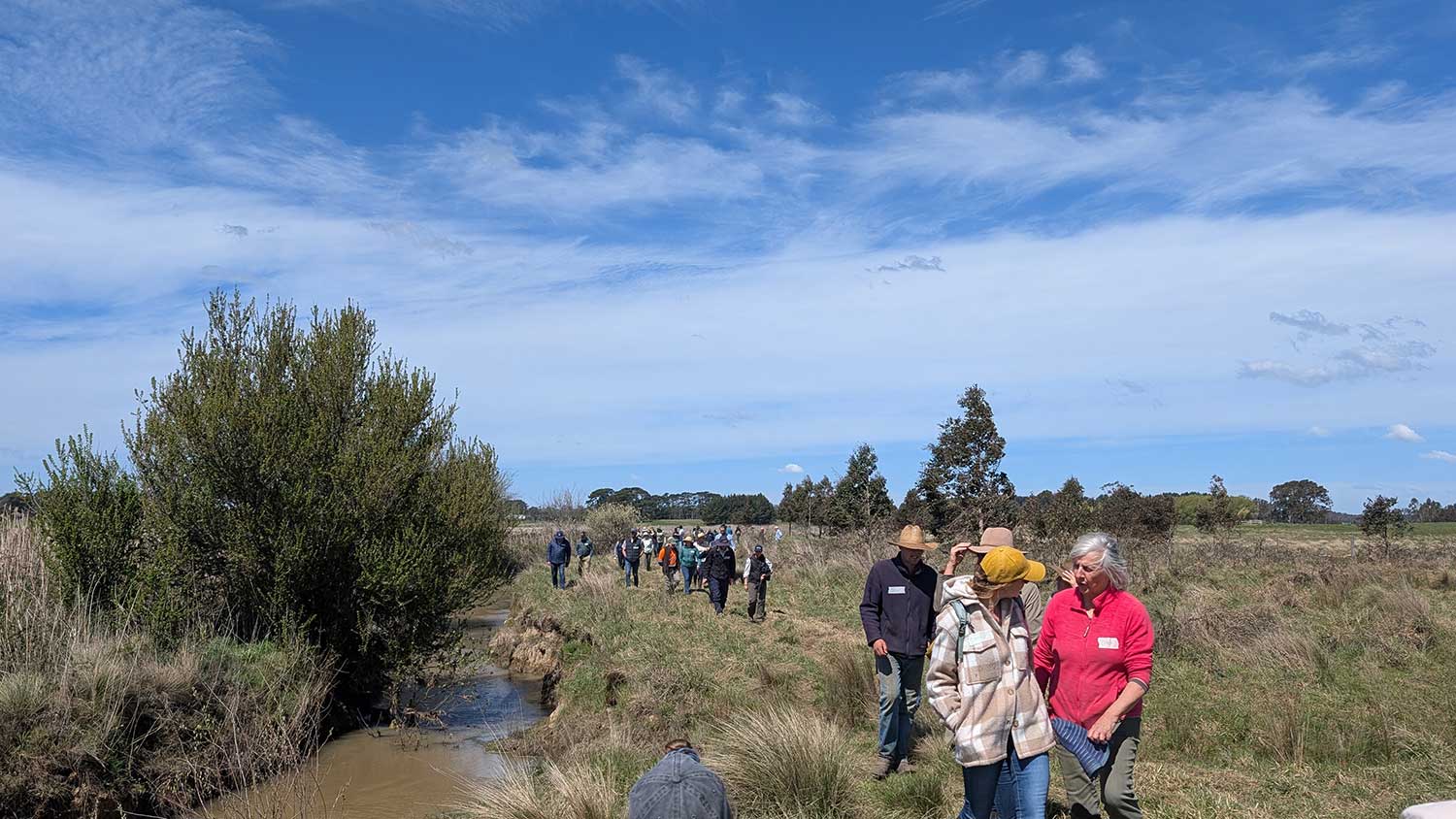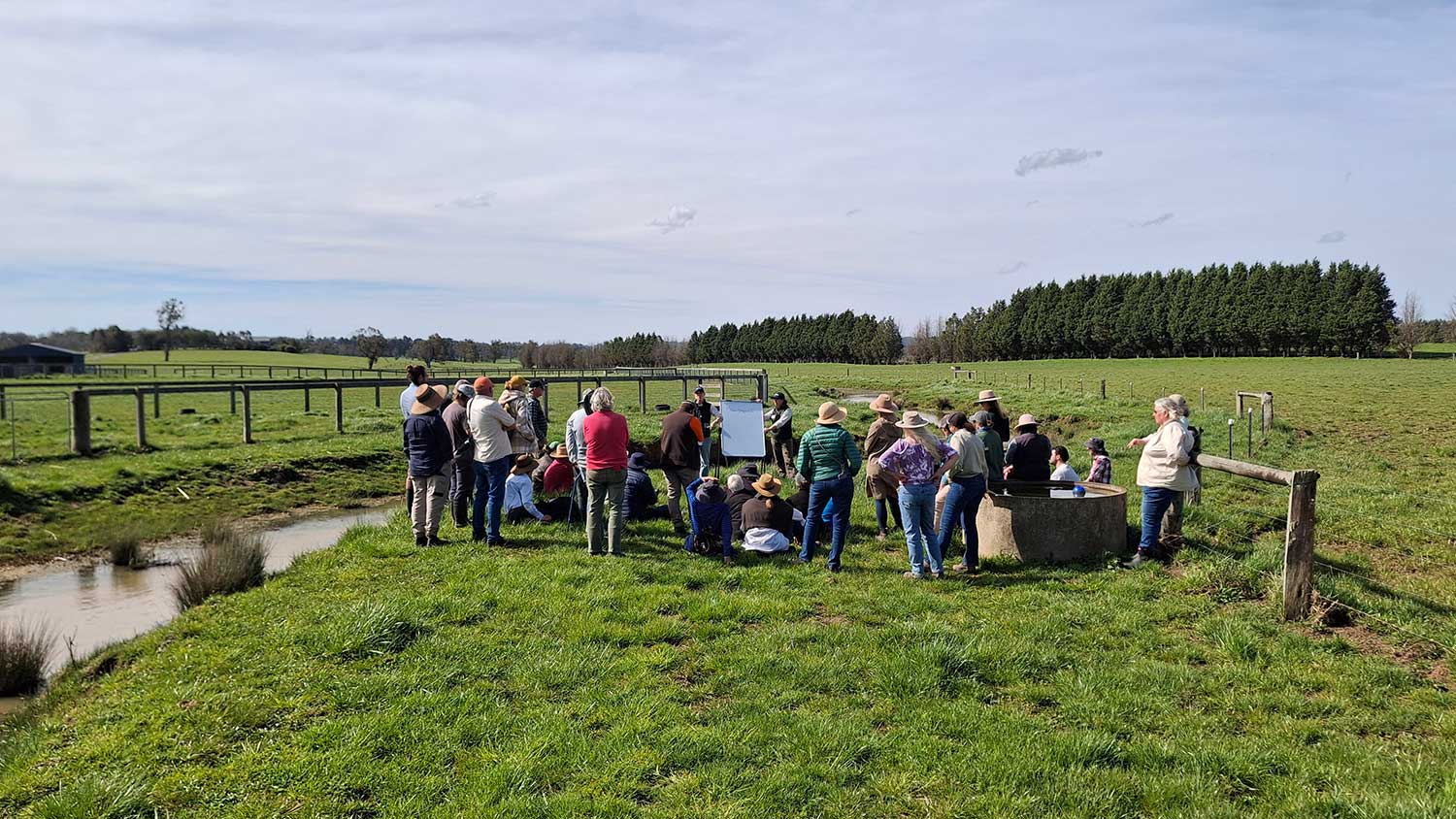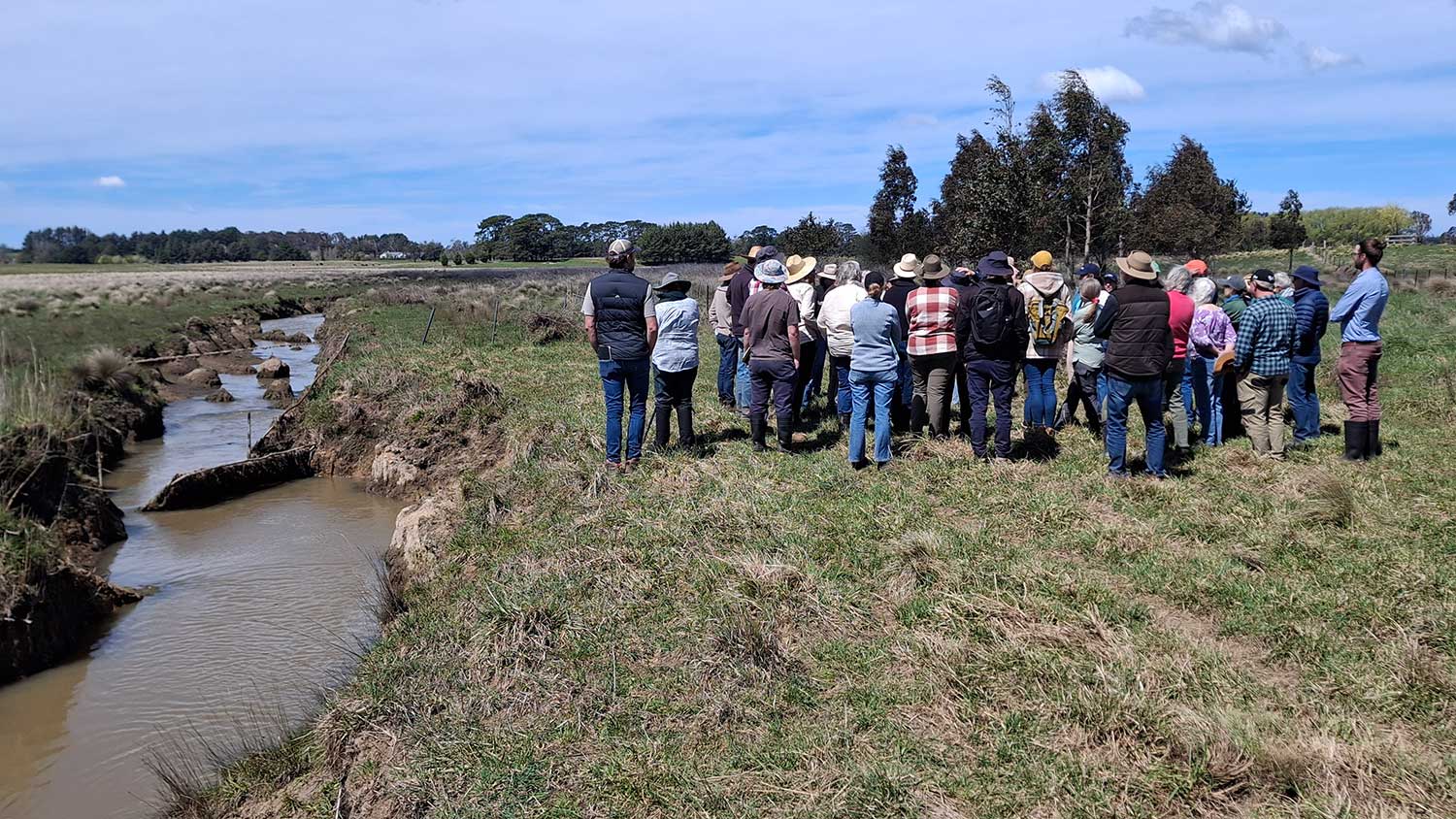This event marked the beginning of a Community of Practice around water stewardship in the Southern Highlands, with Bangalla and Burwood Lodge forming two key demonstration sites that showcase how landscape rehydration can be tailored to the region’s unique climate and geography. These properties already exemplify how multiple landholders within a single catchment can collaborate to achieve greater landscape-scale regenerative impact.
For neighbouring landholders and community, the event offered an opportunity to learn directly from the land with guided tours of Bangalla and Burwood Lodge, two properties where landscape rehydration works are being implemented to restore water cycles and catchment health.
The day kicked off at Glenquarry Peace Memorial Hall, where Mulloon Institute’s Landscape Planners Erin Healy and Brooke Cunningham introduced participants to the fundamentals of the small water cycle and the patterns and processes that shape our landscapes.
We then headed out to the Bangalla property, where participants took part in a walk along Kelly’s Creek as Erin and Brooke unpacked the cycles influencing stream health and the role of plants in managing water. We heard from local landholders, including Deidre Hill and Sandy Purves, about the local flood regimes and their impact and pressure on Kelly’s Creek. Annabel then discussed the upcoming demonstration project at the property, which will see a series of four in-stream structures help to stabilise the system and halt erosion along the stream channel.
After lunch, we led a small convoy of cars to Burwood Lodge, a neighbouring property within the Kellys Creek catchment, to take a look at another project site. Erin discussed Mulloon’s Landscape Rehydration Toolbox – the structures and techniques used to repair riparian ecosystems, build soil health and slow the flow of water. Out in the field, attendees had the opportunity to observe landscape changes from different vantage points within the catchment and ask questions about on-ground works, turning theory into practice.
Conversations throughout the day highlighted key themes: the need to scale interventions strategically, the value of monitoring and adaptation and the role of soil and biodiversity in amplifying water’s restorative power. Many participants also appreciated the chance to connect with neighbours and consider collaborative efforts across property boundaries.
By the end of the day, the group left with fresh knowledge, inspiration and practical ideas for managing waterways on their own land. The Moss Vale Field Day reinforced that when water is restored, landscapes and communities come back to life.
The Kellys Creek Field Day was made possible by Mulloon Institute’s Water Stewardship Program, an initiative encouraging catchments and communities to collaborate on waterway management. Stay tuned for information on an upcoming Kellys Ck Bootcamp and a series of on-ground project sites in the Moss Vale region.



